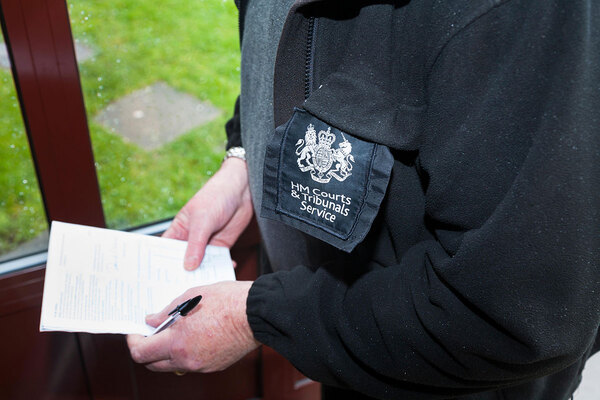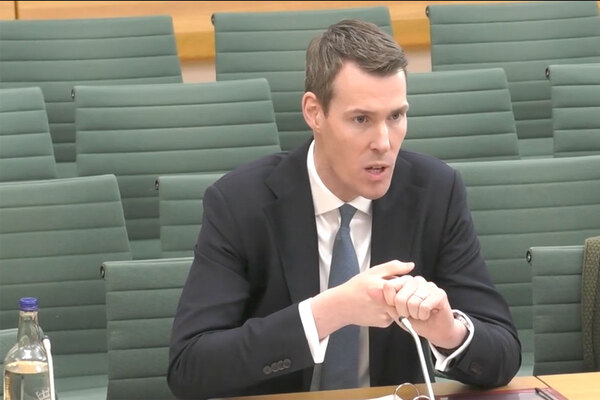New Renters’ Rights Bill will abolish Section 21, introduce standards for PRS and crack down on rental bidding wars
The Renters’ Rights Bill will ban Section 21 no-fault evictions for new and existing tenancies, introduce a number of standards for the private rented sector (PRS), and crack down on tenants outbidding on rental properties.

Being introduced to parliament today, the reforms come at a time when the latest government figures showed that the number of people removed from their homes by court bailiffs as a result of Section 21 no-fault evictions has reached a six-year high.
Banning Section 21 will help reassure tenants they can challenge bad practice without the fear of retaliatory eviction, as landlords will need to provide a valid cause to end a tenancy early.
The no-fault eviction notice will be abolished for both new and existing tenancies at the same time, giving all private renters immediate security and assurance.
Last year alone, nearly 26,000 households faced homelessness as a result of a Section 21 eviction and had to go to their council for support. Greater security will give renters peace of mind, so they can build their lives in their communities.
As previously pledged by the Labour party in February, it will extend Awaab’s Law into the PRS.
The law, named after Awaab Ishak, a two-year-old boy who died following prolonged exposure to mould in his family’s housing association home, will introduce strict timescales within which private and social landlords have to respond to hazards in homes.
Blanket bans on tenants with children or those in receipt of benefits will also be abolished “to ensure fair access to housing for all”.
As outlined in the King’s Speech in July, the government aims to drive up standards in the PRS by applying the Decent Homes Standard to this sector for the first time.
Currently, 21% of privately rented homes are considered non-decent and more than 500,000 contain the most serious of hazards. Clear expectations will be set so that tenants can expect safe, well-maintained and secure living conditions.
The government believes good landlords that provide these standards will benefit from clear regulation and the changes “will eliminate unfair competition from those who, for far too long, have got away with renting out substandard properties to tenants”.
Angela Rayner, deputy prime minister and housing secretary, said: “Renters have been let down for too long and too many are stuck in disgraceful conditions, powerless to act because of the threat of a retaliatory eviction hanging over them.
“Most landlords act in a responsible way, but a small number of unscrupulous ones are tarnishing the reputation of the whole sector by making the most of the housing crisis and forcing tenants into bidding wars.”
The crackdown on rental bidding wars will target “those who make the most of the housing crisis by forcing tenants to bid for their properties”.
Landlords and letting agents will be legally required to publish an asking rent for their property. They will also be banned from asking for, encouraging, or accepting any bids above this price.
Ms Rayner said: “There can be no more dither and delay. We must overhaul renting and rebalance the relationship between tenant and landlord. This bill will do just that and tenants can be reassured this government will protect them.”
There will also be a ban on in-tenancy rent increases written into contracts to prevent landlords implementing too high rents mid-tenancy, often to push out the current tenants. Under these reforms, landlords will only be allowed to raise the rent once a year and to the market rate.
A new private rented sector database will be created to help landlords understand their obligations for compliance and provide tenants the information they need to make informed choices for new tenancies. It will also enable councils to focus enforcement where it is needed most.
Earlier this week, housing minister Matthew Pennycook met with landlord and tenant groups and committed to engaging with them as the bill progresses, to ensure the sector is ready for the changes.
Timothy Douglas, head of policy and campaigns at Propertymark, said: “Having met with the housing minister, it is clear his intention is for these reforms to overhaul private renting in England. They are a long-held manifesto commitment from Labour, with the new government at Westminster using their mandate for reform.
“While Propertymark acknowledges the drive towards improved standards, the UK government must fully understand and recognise the impact that these changes will have, with agents up and down the country left wondering how this legislation will help meet the much-needed demand for homes for people to rent.
“With such significant changes to the current tenancy regime, there must be a commitment to ensure the court system and grounds for possession are robust and fit for purpose.”
Sign up for our daily newsletter
Already have an account? Click here to manage your newsletters
Register your interest for the new Awaab’s Law workshop series (autumn 2024)
Earlier this year, Inside Housing and Switchee brought an incredibly successful series of workshops on Awaab’s Law, exploring the implications for asset management and property, legal and compliance, and resident engagement teams.
Following on from our first programme of workshops on Awaab’s Law, Inside Housing and Switchee are launching a second series. Be part of the conversation and register your interest now.












